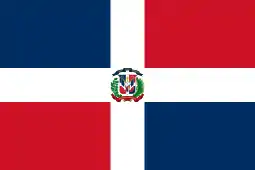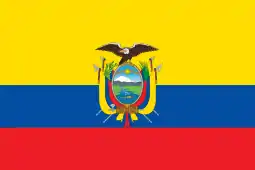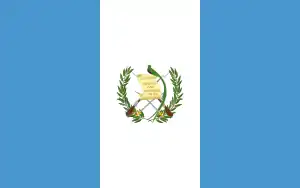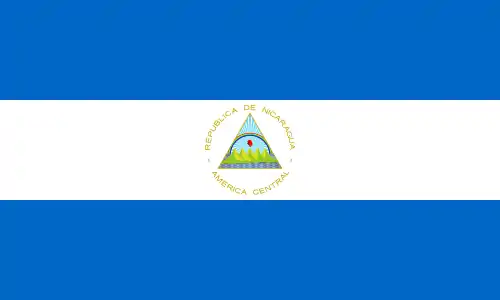Niní
Niní is an Argentine children's telenovela. Produced by Florencia Bertotti and her ex-husband Guido Kaczka together with Endemol and Telefe Contenidos. It is written by Gabriela Fiore and Jorge Chernov. It was aired from September 7, 2009, Monday through Thursday by Telefe at 6 pm. It stars Florencia Bertotti and Federico Amador. Co-starring the actress Maida Andrenacci. With the antagonistic participation of Paula Morales and Esteban Meloni.
 | |
| Also known as | Zapping Zone |
| Genre | Comedy Romance |
| Written by | Gabriela Fiore Jorge Chernov |
| Directed by | Daniel De Felippo Jesús Braceras Emilio Medina |
| Starring | Florencia Bertotti Federico Amador Paula Morales Esteban Meloni |
| Theme music composer | Florencia Bertotti |
| Opening theme | Arriba Las Ilusiones |
| Country of origin | Argentina |
| Original language | Spanish |
| No. of seasons | 1 |
| No. of episodes | 137 |
| Production | |
| Producers | Florencia Bertotti Guido Kaczka Martin Kweller Federico Posternak |
| Production location | Buenos Aires |
| Running time | 45 minutes |
| Production companies | Endemol Kaberplay Telefe Contenidos |
| Release | |
| Original network | Telefe |
| Picture format | Color |
| Audio format | Stereo |
| Original release | September 7, 2009 – April 16, 2010 |
| External links | |
| Website | |
Plot
Niní tells the story of Nina Gómez, an innocent girl, somewhat distracted, spontaneous and with a big heart, who has been left alone with her grandfather, the gardener of the embassy in which they live. The life of Nina it is altered with the arrival of the new ambassador, Tomás Parker (Federico Amador), an orderly and distant man. Tomás Parker arrives at the mansion accompanied by his ambitious secretary Celina Martínez Paz (Paula Morales) and his four adopted children, who, having been born in different countries, form a heterogeneous and very particular family. Niní, who quickly becomes fond of the kids, she must overcome several obstacles to be able to remain in the embassy next to them. To the point that she ends up disguising herself as a man and becoming Nicolás, the new ambassador's driver. Niní will fall madly in love with Tomás just like he does with her. From now on a delicious plot begins to develop where Niní, with its simplicity and brightness, will reach the heart of the Parkers, transmitting values that neither power nor money can get, freedom, love and a sense of humor outside of the usual. But things will get complicated when Nicolás appears, who is actually Niní disguised as a man.
Cast
- Florencia Bertotti as Nina "Niní" Gómez/Nicolás Zampanó
- Paula Chaves as Violeta Barranco
- Brenda Gandini as Jazmín
- Sofía Zámolo as Tamara
- Juan Pablo Urrego as Tony
- Federico Amador as Tomás Parker
- Juan Manuel Guilera as Martín Parker
- Melanie Chong as Chow Parker
- Sheyner Cristian Díaz Gómez as Chama Chan Parker
- Iara Muñoz as Sicilia Parker
- Néstor Zacco as Máximo Parker
- Paula Morales as Celina Martínez Paz
- Esteban Meloni as Víctor Martínez Paz
- Maida Andrenacci as Victoria Acuña
- Mario Moscoso as George Mc Gruster
- Héctor Díaz as Horacio Raymundi
- Vanesa Butera as Carmen Juárez
- Giselle Bonaffino as Lola Benítez
- Sebastián Mogordoy as Ángel Espósito
- Esteban Masturini as Juan Espósito
- Diego Gentile as Sebastián Gallardo
- Pablo Napoli as Hector Gómez
- Paula Sartor as Sofía Anzoátegui
- Antonia Bengoechea as Zoe Anzoátegui
- Valentín Villafañe as Abel López
- Fernando Sureda as Diego de la Fuente
- Ernesto Claudio as Dt. Bartoli
- Emilio Bardinas Juan Alberto
- Marta Paccamicci as Lupe
- Natalia Jascalevich as Thais
- Adriana Ferrer as Adelfa
- César Bordón as Abdel
- Victoria Tortora as Carla
- Leonardo Saggese as Alejandro
- Irene Goldszer as Lorena
Soundtrack
The soundtrack for the series was released On November 9, 2009. The CD is called Arriba las ilusiones. The CD contained video clips for two of the songs and included a gift poster. Within a few weeks of its release it had received its first gold record for sales. All the songs are performed by Florencia Bertotti.[1]
International Broadcasters
Américas
 Argentina: Telefe Internacional
Argentina: Telefe Internacional Colombia: Caracol
Colombia: Caracol Costa Rica: Canal 4
Costa Rica: Canal 4 Dominican Republic: Telesistema
Dominican Republic: Telesistema Ecuador: Ecuavisa
Ecuador: Ecuavisa Guatemala: Canal 3
Guatemala: Canal 3 Mexico: Tiin
Mexico: Tiin Nicaragua: Televicentro
Nicaragua: Televicentro Panama: Televisora Nacional
Panama: Televisora Nacional Paraguay: Paravisión
Paraguay: Paravisión Peru: La Tele, Red Global and ATV Sur
Peru: La Tele, Red Global and ATV Sur Uruguay: Canal 4
Uruguay: Canal 4
Awards and nominations
| Award | Category | Result |
|---|---|---|
| Martín Fierro Award 2010 | Best children's show | Nominated[2] |
| Carlos Gardel Award 2010 | Best movie or television soundtrack | Nominated[3] |
Theater
Niní was adapted to theater in a play called Nini, The Search. All the characters were featured on stage singing and dancing the songs from the original show. The play made its debut on January 24, 2010, in Mar del Plata. The second showing took place on February 27, 2010 in the Orfeo Superdome in Córdoba. More than 5,500 people attended the show. The run ended its season at the Gran Rex theater in Buenos Aires, with over 35,000 people in attendance.[4]
The show was also presented for the first time in Florence, Italy in November 2010.
Legal dispute
In 2010, producer Gustavo Yankelevich filed a plagiarism lawsuit on behalf of RGB Entertainment and Cris Morena Group, alleging that Niní was a copy of the telenovela Floricienta, which Bertotti starred in during the 2004-2005 TV season. The Argentinian courts ruled in favor of the complainants, and Niní was pulled off the air on April 16, 2010, despite earlier reports of an agreement between the two parties.[5] The double-episode ending drew record ratings.[6][7]
References
- "CD Niní es disco de oro en Argentina" (in Spanish). TodoNTV. January 6, 2010. Archived from the original on 28 July 2014. Retrieved 2 January 2013.
- "Ganadores 2010 (Producción 2009)" (in Spanish). APTRA. Retrieved 2 January 2013.
- "PREMIOS CARLOS GARDEL 2010 - LOS NOMINADOS" (in Spanish). Parte Del Show. September 21, 2010. Retrieved 2 January 2013.
- "Show de Niní en el Teatro Gran Rex de Buenos Aires" (in Spanish). El Extremista. February 28, 2010. Retrieved 2 January 2013.
- "Sigue Niní por Telefé" (in Spanish). Perfil.com - Exitoina. March 21, 2010. Retrieved 2 January 2013.
- (Staff) (April 17, 2010). "Nini tuvo que dejar Telefé, por plagiar Floricienta" (in Spanish). MDZ Online. Retrieved 2 January 2013.
- ""Niní" se despidió de la pantalla de Telefe luego de que la justicia dictaminara que era un plagio de "Floricienta"" (in Spanish). Agencia Federal de Noticias. April 17, 2010. Retrieved 2 January 2013.
External links
- Official website of the series (in Spanish)
- Opening of Niní on Youtube